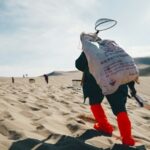There have been import control measures for decades on a variety of goods. US since the US enacted the Uyghur Forced Labor Prevention Act (UFPLA, HR 6256), and EU authorities via the Forced Labor directive aim to ban all companies from importing goods that are tainted with forced labor, namely from the Uyghur region. Forced labor import bans are actions provided for by legislation and enforced by government authorities that stop goods produced abroad at the port of entry on the grounds of suspected forced labor having been involved in their production. Looking at the numbers, the UFLPA has already generated an impact. US Customs Boarders has, to date, denied entry of 2.325 shipments amounting to a value of USD 1.8 billion on the grounds that there was no clear and convincing evidence that the goods, wares, articles, and merchandise were not produced using forced labor. Despite this apparent advancement, our experience and research generate skepticism about the impact of such regulatory initiatives for several reasons:
- Learning from previous experiences – Learning from the US Dodd-Frank Act, section 1502, ‘’conflict mineral’’ (2011), the import control measures derived with traceability and risks of sourcing minerals from DRC have generated two anticipable implications.
- There was no clear evidence of actual mitigation of human rights risks in North Kivu generated by armed groups.
- Development of several schemes circumventing compliance in the region and across international trading of minerals in scope. In discussion with broad number of stakeholders working in China and across ASEAN markets, it is very likely that similar schemes circumventing compliance are being explored
- Other markets are turning into dumping grounds – Beyond the US and potentially the EU, no other country has enacted legislation that addressed forced labor imports to that extent. In practice, all the goods that are deemed not fit for US Custom regulations can, in effect, be sold anywhere else, which heightens the risk of other markets turning into dumping grounds. Regulatory frameworks to date encouraging human rights due diligence and impacting solar panel activities are too broad to provide prescriptive management of related issues. This generates legal insecurity for companies and buyers. Several loopholes may suffice to comply from an import standpoint in the complete absence of compliance with forced labor-related regulations enforced by the very same jurisdictions. For instance, in the US and the EU, wafers produced outside of China with poly-silicon sourced from China are not considered wafers produced in China. This can generate circumvention schemes. This may help businesses to keep going. This ultimately generates legal insecurity for investors and corporations alike.
- Companies are changing behavior but not tackling forced labor per se – At its best, evidence shows that companies are diversifying their supply chains by avoiding sourcing materials from certain areas, namely the Xinjiang region, and therefore circumventing exiting US and EU import bans. US importers will switch to suppliers in Vietnam that, in turn, source from the Xinjiang area. In response to this, experts have called for a coordinated response between different countries to close the loop. However, there is little evidence that companies have taken measures to improve labor standards and reduce instances of forced labor among workers if any remediation was provided to those already impacted, e.g., Reimbursement of unpaid wages.
- Import bans may exacerbate the already dire situation of workers subjected to forced labor. Scaling back operations or even completely disengaging with companies subjecting workers to forced labor either by increasing forced labor or eliminating any form of monitoring or accountability by a foreign entity or by loss of jobs because of a company’s revenues decrease.
Conclusion
As demonstrated above, the imposition of forced labor import bans is likely to be ineffective if not implemented in coordination with other regulatory instruments, such as mandatory human rights due diligence. This combined effort will allow countries to exert pressure and use leverage over other markets to advance their labor standards while pushing companies to engage on a granular level with suppliers to remedy the impacts on affected communities.

Krystel Bassil
Krystel is senior consultant, contributing to Ksapa’s consulting and advocacy missions, on the topic of business and human rights and more generally sustainability. Krystel Bassil is also Senior Legal Officer of the Human Rights and Business Unit at the Syrian Legal Development Programme (SLDP). Prior to that Krystel worked as a business and human rights consultant advising along with leading experts on a wide range of projects across the private sector, international organizations, and academic institutions. She is admitted to the Beirut Bar and worked as a lawyer in international arbitration and human rights. Krystel holds a LL.M. degree from SOAS, School of Oriental and African Studies, University of London, a law degree in public law from the Holy Spirit University of Kaslik, Lebanon, and a degree in political science from the Saint-Joseph University of Beirut. She is fluent in French, English and Arabic.






